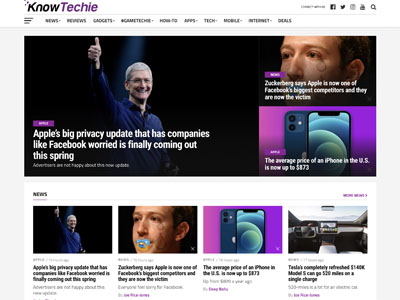Boost Your Knowledge with the Best tech blog Featuring Industry Experts
Boost Your Knowledge with the Best tech blog Featuring Industry Experts
Blog Article
Just How Blockchain Modern Technology Is Revolutionizing Information Safety And Security
Blockchain technology is basically modifying the landscape of data protection by presenting a decentralized structure that promises improved transparency and durability. Unlike standard systems, which depend on centralized information repositories, blockchain disperses information throughout a network, decreasing vulnerabilities and single factors of failing. Making use of innovative cryptographic strategies makes sure that data continues to be tamper-proof, fostering depend on amongst stakeholders and users. As markets quickly adjust to this innovation, inquiries develop about its wider impact and possible obstacles. What implications does this change hold for future data protection techniques and regulative structures? The responses may surprise you (Best tech blog).
The Basics of Blockchain
Blockchain technology, an advanced idea in digital information administration, fundamentally changes exactly how information is stored and secured. At its core, a blockchain is a dispersed ledger that videotapes transactions throughout a network of computers, guaranteeing openness and immutability. The innovation runs on a chain of blocks, each having a list of purchases. Once a block is loaded, it is time-stamped and connected to the previous block, creating a chronological chain.
Trick to understanding blockchain is the hashing process, which secures deal information into an one-of-a-kind alphanumeric code. This cryptographic function guarantees that any kind of alteration in the purchase information results in a completely various hash, therefore guarding versus meddling. The agreement system, another important part, validates and validates brand-new purchases with a network of nodes, consequently eliminating the need for a central authority.
Additionally, blockchain's append-only structure makes sure that data, as soon as included, can not be deleted or changed. This characteristic warranties a permanent and verifiable document of deals, cultivating depend on among individuals. Because of this, blockchain offers a durable framework for data stability, offering markets a trusted method for tracking and managing digital details in a protected, clear way.
Decentralization and Safety
Decentralization, a core concept of blockchain technology, substantially boosts data safety by distributing control throughout a network instead of depending on a particular, central entity. This circulation reduces the risk of solitary points of failure, which prevail in traditional centralized systems. By spreading data across various nodes, blockchain guarantees that also if one node is jeopardized, the entire network continues to be safe. This redundancy not just fortifies the integrity of the data yet likewise enhances its durability to cyberattacks and system failures.

Each individual in the network has access to the whole blockchain, enabling them to confirm and audit purchases separately. Generally, decentralization is instrumental in boosting information safety and security in blockchain networks.

Cryptographic Methods
At the heart of blockchain technology, cryptographic techniques play a pivotal function in securing information, making sure both privacy and honesty. These strategies are foundational to the blockchain's capability to firmly videotape transactions in a decentralized manner. Cryptography in blockchain uses a combination of crooked and symmetrical formulas to encrypt information, making it accessible only to licensed celebrations - Best tech blog. Public and private crucial pairs are main to this procedure, enabling protected verification and identification verification without disclosing sensitive info.
Hash features are an additional essential element, transforming input data into a fixed-size string of personalities, properly producing a distinct electronic fingerprint for every block. This guarantees that any kind of attempt to change the information will certainly cause a completely various hash, therefore maintaining the immutability of the blockchain. Digital trademarks confirm the authenticity and stability of purchases, offering a layer of non-repudiation.
The decentralized nature of blockchain, combined with robust cryptographic strategies, eliminates the demand for intermediaries, decreasing potential vulnerabilities. As blockchain innovation develops, improvements in cryptography such as zero-knowledge proofs and homomorphic file encryption remain to boost security procedures, even more fortifying information security in this cutting edge digital journal system.
Use Situations Across Industries

In the health care industry, blockchain makes sure the safe and secure storage and sharing of individual documents, promoting interoperability while protecting delicate information from unauthorized Get the facts accessibility. This innovation empowers clients with control over their medical history and helps with smooth sychronisation amongst medical care service providers.
Supply chain management advantages substantially from blockchain's unalterable ledger, which makes certain traceability and credibility of items from beginning to consumer. By boosting transparency, blockchain helps mitigate problems such as counterfeiting and unethical sourcing.
In addition, blockchain's decentralized nature is reshaping the energy industry by making it possible for peer-to-peer power trading, where customers can buy and sell excess renewable energy straight. This cultivates a more efficient and sustainable energy community.
In the realm of intellectual residential property, blockchain gives a tamper-proof system for designers to sign up and secure their jobs, making sure rightful acknowledgment and fair settlement. These diverse use cases highlight blockchain's role as a crucial pressure in redefining information safety and security throughout sectors.
Future of Information Security
As we seek to the future of information protection, blockchain modern technology is poised to play a crucial role in safeguarding digital details. With its decentralized and immutable features, blockchain offers a durable framework for protecting sensitive information versus unauthorized accessibility and cyber risks. This innovation guarantees that as soon as information is tape-recorded, it is virtually difficult to alter without discovery, hence offering a significant benefit over standard data storage space techniques.
The integration of blockchain with various other innovative innovations, such as synthetic knowledge and the Internet of Things (IoT), is anticipated to boost data security techniques even more. By leveraging clever contracts, companies can automate and implement protection methods, reducing human mistake and enhancing efficiency. Furthermore, blockchain's ability to supply deducible and transparent transactions will reinforce count on and accountability in data administration practices.
As governing landscapes advance, blockchain's compliance-friendly nature will come to be significantly relevant. It can aid companies satisfy rigid information security guidelines, such as the General Data Protection Law (GDPR) and the California Customer Personal Privacy Act (CCPA), by offering proven records of information handling activities. Eventually, blockchain's unique characteristics placement it as a transformative device in the continuous pursuit to safeguard the electronic globe versus ever-evolving cyber risks.
Verdict
Blockchain innovation represents a paradigm shift in data safety and security by leveraging decentralization and cryptographic strategies to improve openness, trust fund, and information integrity. Its capacity to eliminate single points of failure and utilize consensus mechanisms significantly minimizes the danger of fraudulence and cyberattacks. This innovative framework not only empowers customers with better control over their data yet likewise aligns with governing compliance. As cyber threats advance, blockchain arises as an essential device for durable data security across different sectors.
Blockchain modern technology is fundamentally modifying the landscape of data safety and security by introducing a decentralized framework that assures improved transparency and resilience. Unlike conventional systems, which rely on central go to this website data repositories, blockchain distributes data throughout a network, minimizing vulnerabilities and single points of failure.Decentralization, a core concept of blockchain technology, substantially improves data safety and security from this source by distributing control across a network rather than depending on a particular, central entity.At the heart of blockchain modern technology, cryptographic techniques play a critical function in protecting data, making sure both privacy and honesty.Blockchain technology stands for a standard shift in information protection by leveraging decentralization and cryptographic techniques to boost transparency, trust fund, and data honesty.
Report this page